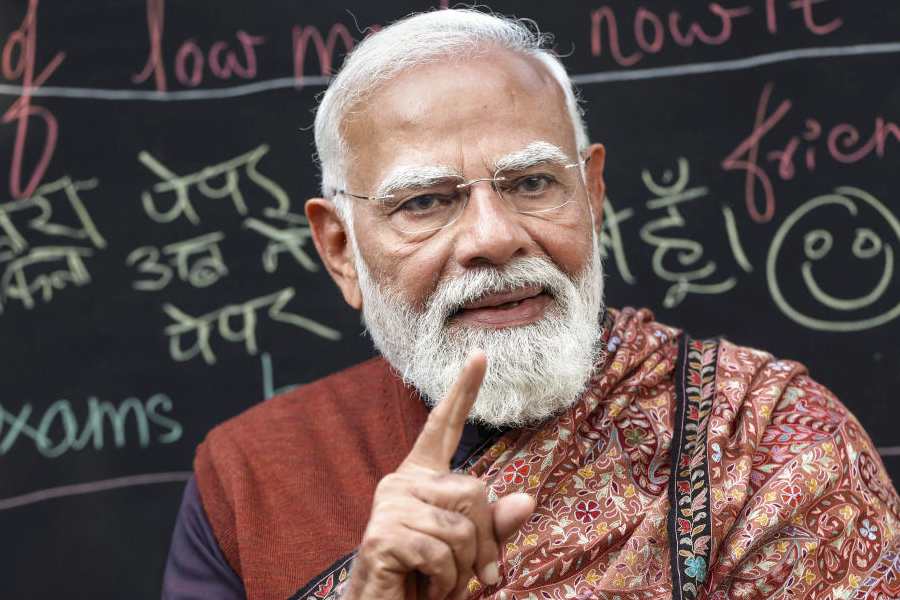New Delhi, Oct. 23: Prime Minister Narendra Modi today said his government was determined to make India an "international arbitration hub" for the resolution of domestic and global commercial disputes.
He was addressing a three-day conference on arbitration where Chief Justice T.S. Thakur too batted for this alternative method of resolving disputes, saying it was speedier and cheaper than litigation and would lighten the courts' burden.
Unlike regular court proceedings, arbitration allows the disputing parties to choose their own judge as they seek a mutually acceptable and quick solution.
Modi told the conference, titled "national initiative towards strengthening arbitration" and organised by the Niti Aayog and the judiciary, that an efficient arbitration system would "provide ease and comfort to investors and business".
"More importantly, the case load on Indian courts will reduce," the Prime Minister said.
Quoting Mahatma Gandhi, Modi said a lawyer's true function was to unite the disputing parties, which was the idea behind arbitration.
"For the creation of a vibrant economic institution, arbitration is one of the foremost objectives of the government. Recently, major amendments have been made to the Arbitration and Conciliation Act, making the arbitration process easy, timely and hassle free," he said.
Modi said that India had become the world's fastest-growing economy thanks to some of his government's initiatives, such as the abolition of 1,000-odd archaic laws, push for the goods and services tax, and the constitution of commercial courts.
The Prime Ministers of Singapore, Bhutan and the Maldives attended the event, as did law minister Ravi Shankar Prasad.
Justice Thakur said that arbitration offered great promise not only to the litigants but also to the overworked courts and their judges.
"The courts, right from the Supreme Court to the munsif courts, are overburdened.... There are 18,000 judges and nearly 15 million cases coming up for hearing every year," he said.
"The avalanche of cases is constantly putting the judicial system under great stress. And therefore, we look for some alternative to this conventional method of resolution of disputes."
Justice Thakur said that arbitration ought to be encouraged for both international and domestic disputes.
He added: "We were told by a distinguished speaker yesterday that out of 189 countries, India ranks 130 in terms of ease of doing business. One of the concerns any foreign investor has is the efficiency of the judicial system where he is investing. Therefore, strengthening of the judicial system is intimately connected with our ambition of attracting more and more direct FDI."
Justice Thakur said there should be more venues for conducting arbitration - they are now conducted in five-star hotels or clubs in India.
He added that apart from retired judges, efforts should be made to have trained arbitrators from among chartered accountants, engineers and others who are experts in their domains.
Justice Thakur, however, cautioned that promoting arbitration wasn't enough: India must also revisit its legal framework.
"What is afflicting the arbitration (process) is not the time taken by arbitrators to decide an issue but the time the courts take after a losing party decides to challenge the award made (by the arbitrator)," he said.
"Therefore, a legal framework which will ensure that prolongation in the courts is also addressed is something that needs to be addressed."
He said Singapore had become the most preferred arbitration hub in the world.
Law minister Prasad said the NDA government had taken various steps to turn India into an investor-friendly destination.










